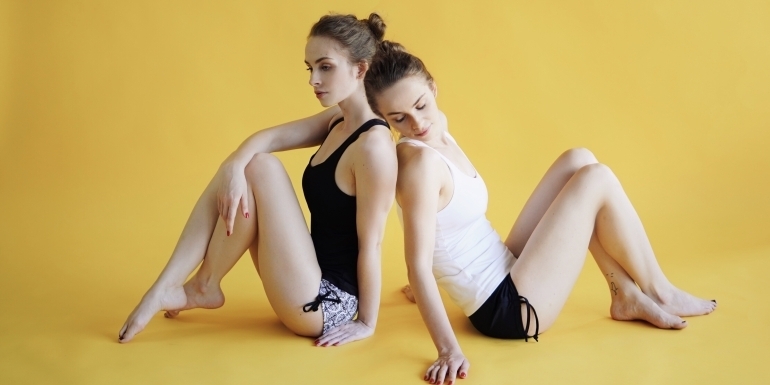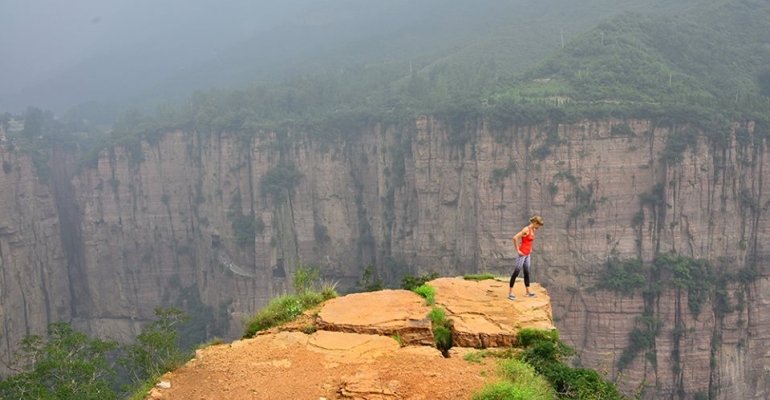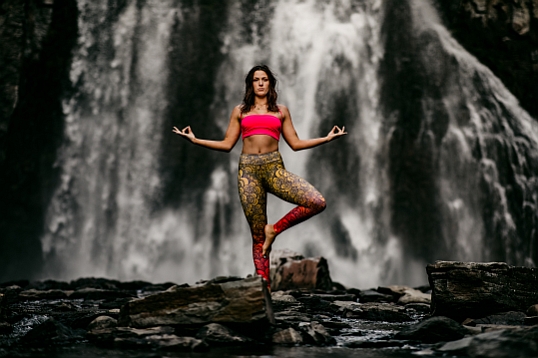
We often reduce yoga to simple tools such as asanas or meditation, and we forget the whole sphere of informal practices and a certain spirit of yoga. And they can be very helpful in such - as the Chinese curse says - "interesting times" that we are experiencing nowadays.
Many people are now asking themselves how not to succumb to uncertainty or anxiety and not to fall into negative thinking, how to think more positively. The yogis would recommend that we act bilaterally - reducing negative influences on the one hand and strengthening resources on the other hand. So, on the one hand, for example, using an informational diet, reducing the excessive amount of information that causes our anxiety or otherwise weakens us, and, on the other hand, finding what strengthens our resources for coping, mental resilience. Everyone has a resource that is particularly important to him or her to cope well in a difficult situation.Unfortunately, there is no single recipe for everyone here, because for someone the most important resource will be proximity, and for another person the possibility of being alone with oneself. However, it is worth looking at yourself and finding the most important resource for your psychological resistance. I will give you a hint that it is often something that we unintentionally destroy in a difficult situation, so for example, a person who strengthens his or her closeness to others, often in a difficult situation unintentionally destroys that closeness and creates walls.

For yogis and mystics of many paths, an important element of building one's own resources, and at the same time, the prevention of emotional states that take away our strength, is the cultivation of so-called heart qualities. These are qualities such as acceptance, compassion, loving kindness, patience, gratitude, and so on. In addition to building up our positive resources, they also help to minimize the experiences that take away our strength, such as cultivating gratitude helps to neutralize dissatisfaction, cultivating compassion removes excessive focus on ourselves, and for example, the cultivation of loving kindness and love leaves us with less room for fear.

It is also extremely important to gradually develop in ourselves the yogic virtue of non-adherence, which should not be understood as emotional indifference. We should rather treat it as a peace-loving neutrality to events. The great Indian mystic from the early 20th century, Hazrat Inayat Khan, recommends a simple informal exercise: "learn to see the good in the bad and the bad in the good". This is not a slogan we are to be intellectually inspired by, but a practice that should be followed in the course of everyday life. When there are events that we would normally judge as good, pleasant, etc., take a look at them and try to see what negative consequences they can have, whether for us or for someone else. When we experience unpleasant events, let us look at them and find their good sides, positive effects etc.

It is important to focus on both parts of the exercise. Perceiving the evil in everything will not help us, but perceiving only the positives will also distract us from the reality.However, when, without simplification, we try to understand the positive and negative consequences of any event, then we will understand that the reality is what it is, neither good nor bad, and a little depends on our interpretation and a lot on what we do with a given situation, how we use it, what we learn from it, etc.We should remember that we have to start this exercise with simple situations, and not with extremely difficult events from our life. When we "train" our attitudes in ordinary situations for some time, this way of perception becomes a kind of our shadow, and then we enter into the situations that appear in our lives with greater distance and autonomy. Good luck!
Author of the text:
Maciej Wielobób is Agnieszka's husband, Tymon's dad, meditation and yoga teacher, the author of 7 books on yoga, meditation and ayurveda. He conveys the depth of traditional paths in a way that is understandable and useful for a contemporary individual. He helps to release tension and use one's full potential. He knows Indian mysticism "from the inside" as a teacher-initiator in traditional meditation schools and loves demonstrating concrete applications of traditional concepts and tools in our everyday life.




Leave a Reply Cancel Reply